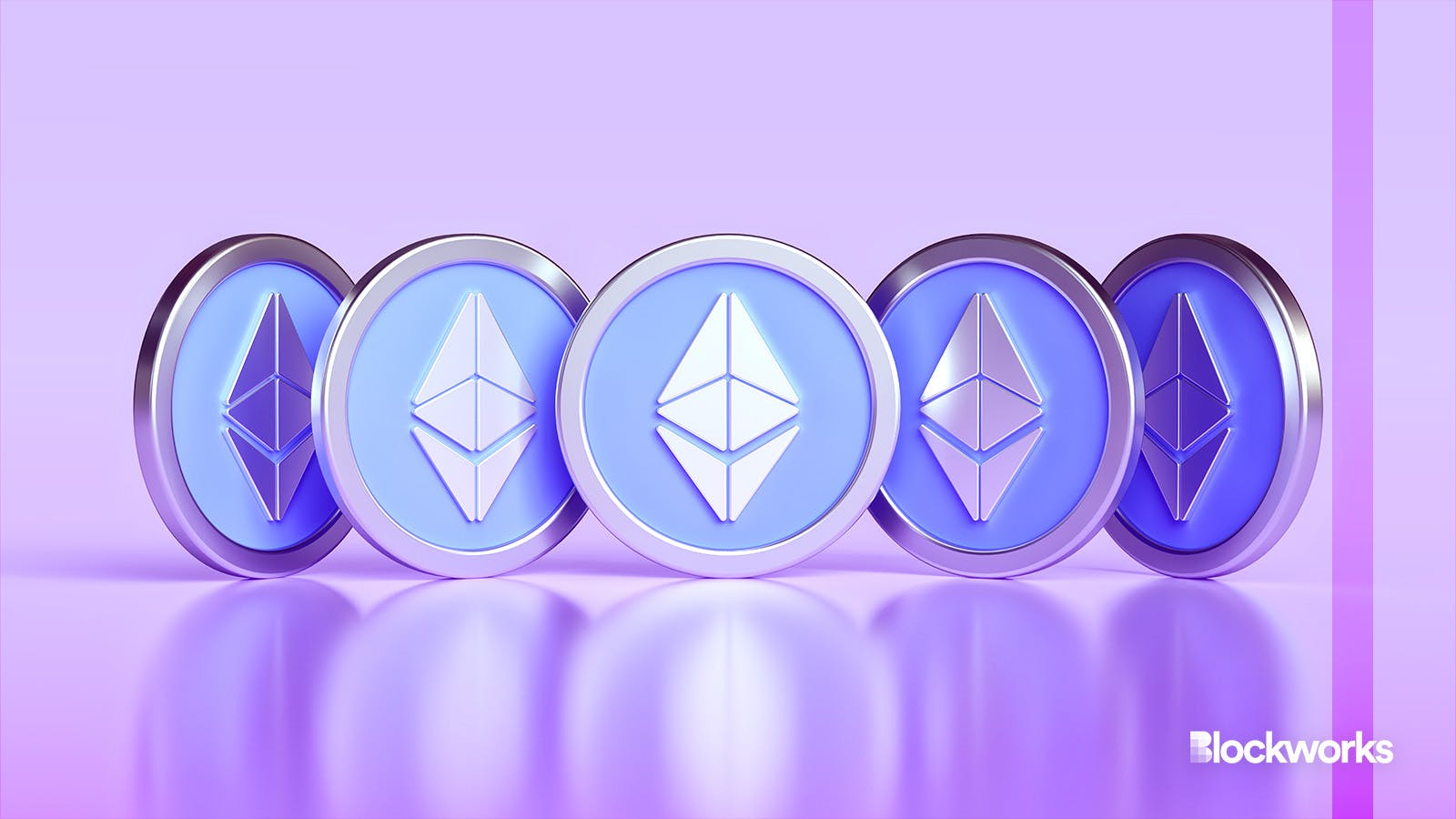Index tokens offer new path to diversified ETH yields
Index Coop is automating investment in high yield ether opportunities, minus the points farming

ddRender/Shutterstock modified by Blockworks
The advent of EigenLayer restaking has opened up new yield opportunities for ether holders. A handful of protocols now provide liquid restaked ETH, juicing returns for those who know where to look.
A new product from Index Coop aims to bundle those yields into an index token for easy access and built-in diversification.
The High Yield ETH Index (hyETH) set to launch next month, combines into a single token five yield strategies that meet minimum APY and total value locked (TVL), among other criteria, using open-source, audited protocols.
To test demand for such a product, Index Coop devised a points-inspired bootstrapping mechanism called Product Revenue Tokens (PRTs).
Read more: DeFi ‘points’ farming has reshaped the crypto investment landscape
Index set a 30-day goal of 500 wstETH (Lido wrapped staked ether) on April 8 — about $1.8 million — at the time, but blew through that target in less than a day. After reaching the minimum to launch hyETH, deposits have since doubled.
“It has exceeded our expectation,” the ecosystem growth lead at Index Coop, who goes by Crews.eth, told Blockworks.
PRTs can only be earned by depositing into the hyETH pre-sale contract, and won’t be distributed until the product launches.
“It’s definitely inspired by the popularity of point systems, but we prefer to give people a real ERC20 token on-chain rather than just holding points in an off-chain database,” Crews said. “And we prefer to direct real yield from product revenue to the holders of those PRT tokens.”
As with many projects to offer structured products on-chain in the wake of Securities and Exchange Commission enforcement actions, Index Coop products are only available to investors outside the US.
Index plans to distribute 30% of the 10,000 PRTs to participants in the hyETH presale, with the remaining 70% going to the Index Coop Treasury.
Prior product launches have tended to share revenue 60/40 between the coop and a methodologist partner, like the DeFi Pulse Index (DPI).
Index then used its own governance token (INDEX) to incentivize liquidity into its products.
“People require social proof when they want to deposit into a new product, so it’s really good to not have a product that, like, struggles to break through that first million dollars deposited,” Crews explained.
But it found that the partnership model was ultimately unsuccessful, Crews said, citing as an example the Bankless BED Index, which has fewer than 800 token holders and $800,000 in TVL, according to Etherscan.
The cooperative still plans to eventually direct protocol revenue to INDEX holders, but only after consistently breaking even, he said.
PRT holders will have to stake their PRTs to share in the revenue of the new product post-launch.
“Users want to see and know that they are being rewarded for their contributions and using a protocol,” Crews said. “You want the user to understand that you appreciate them being an early mover, an early adopter and risking their capital into an up-and-coming product.”
Get the news in your inbox. Explore Blockworks newsletters:
- The Breakdown: Decoding crypto and the markets. Daily.
- 0xResearch: Alpha in your inbox. Think like an analyst.






